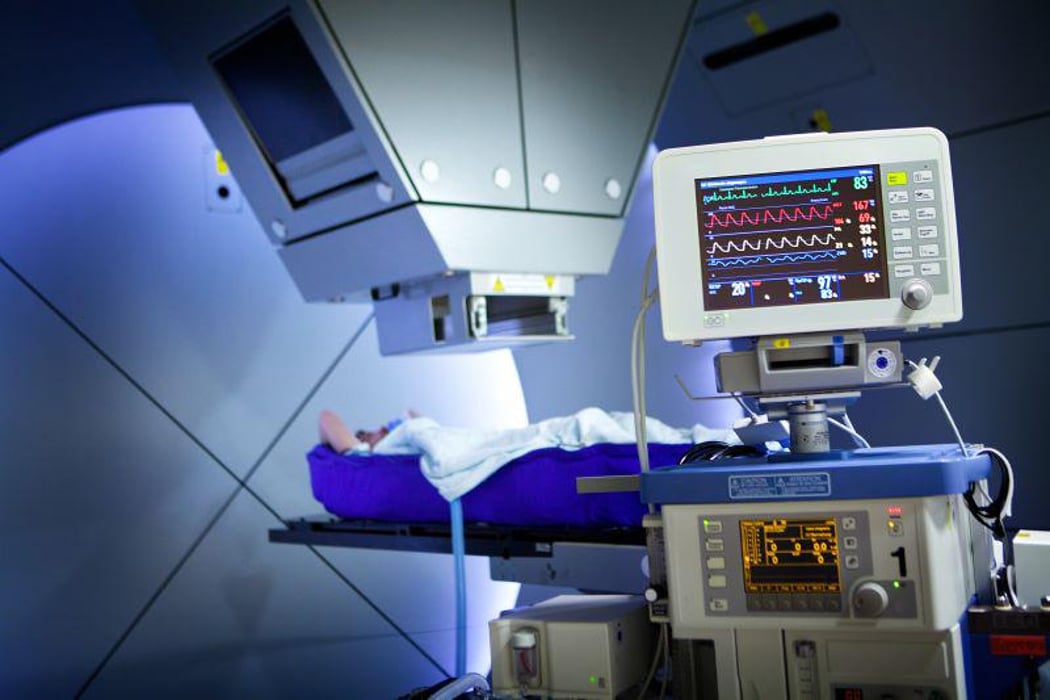Use of Proton Beam Therapy for Newly Diagnosed Cancer on the Rise

FRIDAY, May 6, 2022 (HealthDay News) -- The number of U.S. patients receiving proton beam therapy (PBT) for newly diagnosed cancers increased from 2004 to 2018, according to a study published online April 27 in JAMA Network Open.
Leticia M. Nogueira, Ph.D., M.P.H., from the American Cancer Society in Atlanta, and colleagues assessed patterns of PBT use among groups of patients with different PBT indications in the United States from 2014 to 2018. The analysis included more than 5.9 million eligible patients.
The researchers found that use of PBT in the United States increased from 0.4 percent in 2004 to 1.2 percent in 2018 (annual percent change [APC], 8.12 percent). This was driven by increases among patients for whom health insurance coverage for PBT treatment was recommended (0.4 percent in 2010 to 2.2 percent in 2018; APC, 21.97) and increases among those for whom coverage was recommended only if additional requirements were met (0.03 percent in 2014 to 0.1 percent in 2018; APC, 30.57). Among patients for whom health insurance coverage for PBT treatment was recommended and who were treated with PBT, 55.4 percent had private insurance coverage in 2018.
"The findings of this study suggest that PBT uptake varies by indication group and is most commonly used to treat cancers for which PBT effectiveness is still under study," the authors write.
Several authors disclosed financial ties to various medical and pharmaceutical companies.
Related Posts
Las infecciones por estreptococos se dispararon este invierno
JUEVES, 20 de abril de 2023 (HealthDay News) -- Este invierno pasado hubo un...
Community Engagement Tied to Less Inpatient Care in Older Adults
THURSDAY, April 6, 2023 (HealthDay News) -- More social, cultural, and community...
La mayoría de los estadounidenses no saben para qué sirve la línea de crisis de suicidio 988: encuesta
MIÉRCOLES, 24 de mayo de 2023 (HealthDay News) -- Apenas un 13 por ciento de los...
It Can Take Weeks for Some Patients With Severe COVID to Recover Consciousness
WEDNESDAY, March 16, 2022 (HealthDay News) -- In yet another sign that severe...
